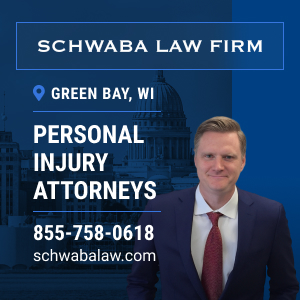Cognitive impairment after a Green Bay brain injury
In Green Bay, Wisconsin, like in many parts of the U.S., cognitive impairment is a common outcome following serious crashes or injuries, particularly in cases involving traumatic brain injuries (TBI). National statistics show that approximately 15-20% of individuals who suffer a moderate to severe TBI experience long-term cognitive deficits, including memory loss, attention difficulties, and impaired reasoning. In auto accidents, which are a leading cause of TBI, these impairments can be even more severe due to the sudden and violent impact on the brain. Studies have found that among individuals involved in severe car accidents, over 50% of those who sustained a TBI showed significant cognitive dysfunction within the first year post-injury. Green Bay follows similar patterns, with TBIs from motor vehicle accidents, falls, and workplace injuries leading to a notable number of cases where victims require prolonged rehabilitation and care. These impairments often result in substantial medical costs and long-term support needs for individuals and their families.
A traumatic brain injury (TBI) can cause significant cognitive impairment, affecting functions such as memory, attention, problem-solving, and executive functioning. Depending on the severity and location of the injury, a person may experience difficulty with processing information, focusing on tasks, or retaining new memories. In more severe cases, a brain injury can disrupt language skills, decision-making abilities, and even alter personality or emotional regulation. Damage to the brain's frontal or temporal lobes is particularly associated with cognitive impairments, and these effects may be temporary or permanent, depending on the injury's nature.
Treatment for cognitive impairment caused by TBI often involves a combination of medical interventions and rehabilitation therapies. In the acute phase, medications may be used to manage symptoms like headaches, seizures, or mood swings, which can interfere with cognitive recovery. Long-term management typically includes cognitive rehabilitation therapy (CRT), which helps retrain the brain to improve thinking skills through targeted exercises. Occupational therapy and speech-language therapy also play critical roles, helping patients regain the ability to perform daily tasks and communicate effectively. Neuropsychologists often assess cognitive function and tailor individualized therapy plans, while assistive technology like memory aids can support recovery. Although some cognitive deficits may persist, early and consistent treatment can significantly improve quality of life.
When someone suffers cognitive impairment after a serious accident in Green Bay, click the links below to get help from an attorney who specializes in that type of accident or injury:
- Green Bay car accident attorney;
- Green Bay pedestrian accident attorney;
- Green Bay motorcycle accident lawyer;
- Green Bay truck accident lawyer;
- Green Bay bicycle accident attorney;
- Green Bay drunk driving accident lawyer;
- Green Bay distracted driving accident law firm;
- Green Bay wrongful death claim lawyer;
Regardless of how severe an accident is, almost everyone involved has to deal with insurance companies and claims. For crashes involving more serious injuries, or when a fatal crash occurs, a Green Bay personal injury attorney is needed to manage the insurance claim. Go here to learn more about how a Green Bay brain injury lawyer helps injured victims.
Return to the causes of brain injuries in Green Bay information page
Most recent accident reports
- ‹ previous
- Page 2
- next ›


